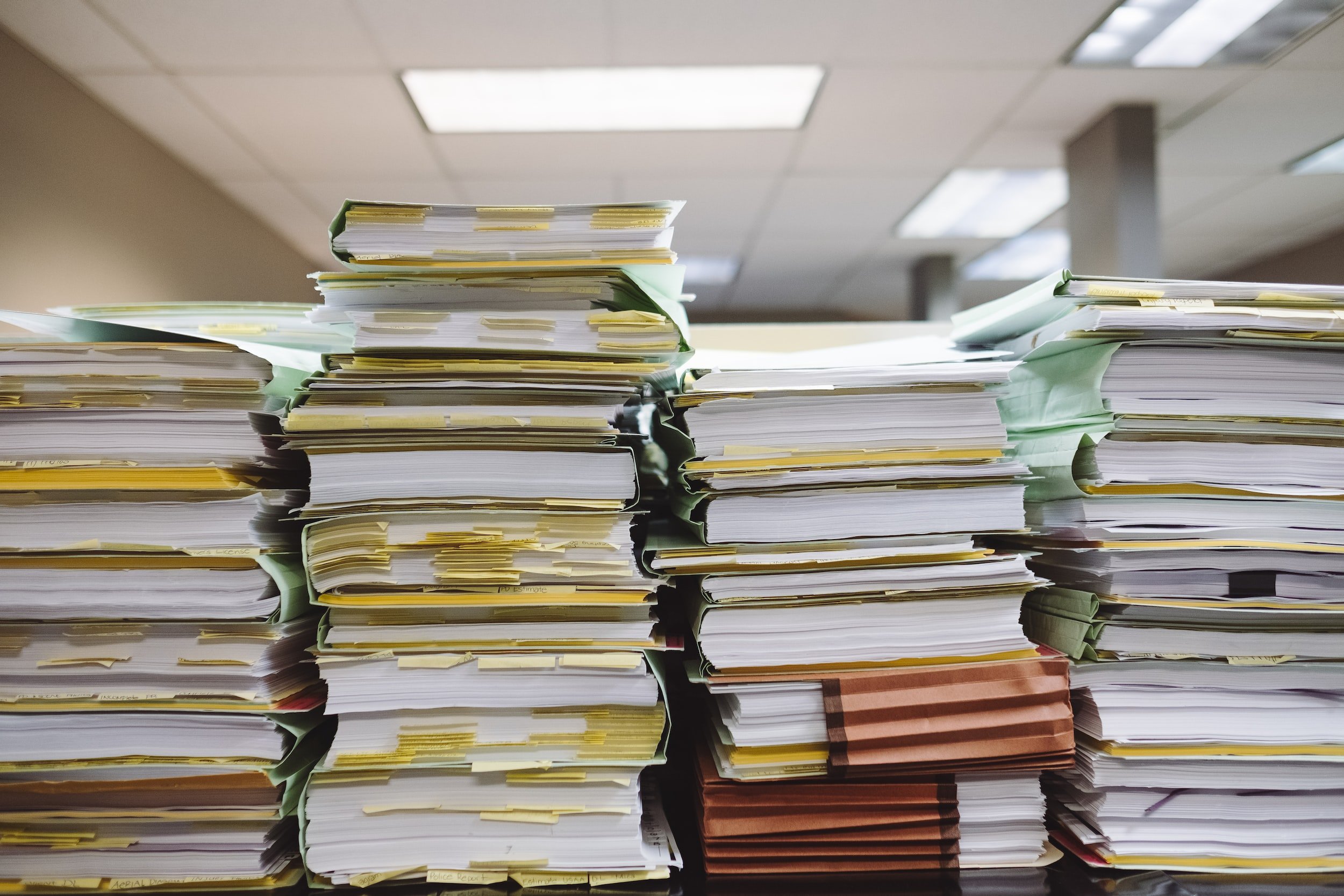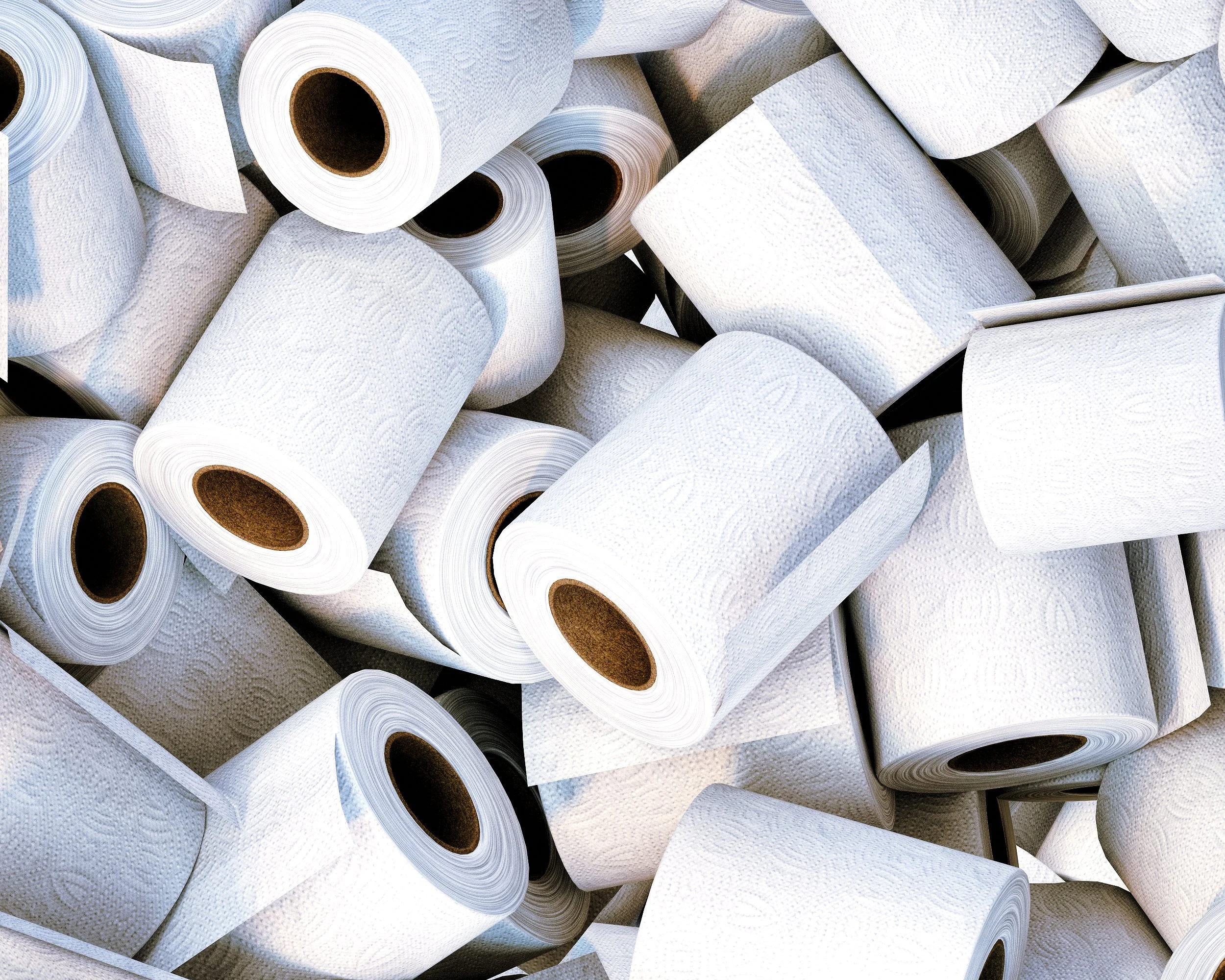What We Do / Waste Reduction and Recycling / Waste Reduction at Work
Waste Reduction at Work
Offices are bursting with all kinds of wastes.
From plastic to paper to food, we take our waste with us to work. You may be wondering how to tackle office waste and inspire your colleagues to do the same. Read below to find out how YOU can lead that effort! Thanks to Livia Charles, Sustainability Coordinator at Asheville GreenWorks for putting this resource together.
Perform a waste audit:
Waste audits tell you what material you are sending to the landfill, and provide you with the necessary information to curb your waste production. According to a recent waste audit at a large government building in Asheville, 67% of the waste could have been diverted to recycling or compost.
How to do it:
1. Collect all of your waste over a one-week span.
2. Sort your waste into categories and calculate the weight of each category using this form and a kitchen or body-weight scale.
3. Analyze your data and consider how you can reduce your highest-waste categories.
Then… reduce!
Depending on your data, consider how you can address your biggest waste problem. If your office’s largest category of waste is office paper, consider printing double-sided and placing a reminder above the printer that American offices use about 4 million tons of copy paper every year (equivalent to chopping down 100 million trees). A Xerox study found that nearly half of all printed documents are thrown away within 24 hours, and 30% are never picked up from the printer. Whew… we can do better.
If you’re throwing away a lot of food, consider implementing a composting program using a local composting pickup service, such as Compost Now, or driving your compost to our local food scrap drop-off location.
There are so many plastic alternatives and innovative ways to reduce waste!

Consider your shipping and deliveries
According to Oceana, in 2019 Amazon generated 465 million pounds of plastic packaging from shipping 7 billion packages. It’s estimated that 22.4 million pounds of that plastic packaging ended up in waterways and marine ecosystems. Those estimates are from just one company and before the Covid-19 pandemic, when e-commerce exploded.
If you receive large quantities of shipping material to your office, there are numerous reduction options to consider.
Sourcing office items
If you buy food, coffee, or other beverages for the office, consider buying in bulk and refilling when possible. The same goes for hand soap, dish soap, and other cleaning supplies. Many cleaning supplies are full of plastic so make sure you know what’s in the products you purchase. If you have a cleaning service, ask them to use your zero-plastic supplies.
Toilet paper/paper towels/tissues → Who Gives a Crap (sold locally at West Village Market)
Trash bags→ Earth Hero
Hand soap → Ware, To the Brim Refill, West Village Market, Plaine Products
Dish soap → Ware, To the Brim Refill, West Village Market, Cleancult
Ink cartridges → Inkpal
Paper (8.5*11) → EcoEnclose
Envelopes (4.1*9.5) → EcoEnclose
Envelopes( 4.4*5.8) → EcoEnclose
Labels → EcoEnclose
Packing tape → EcoEnclose
Stickers → EcoEnclose
Other/office supplies → Dolphin Blue
Before using Amazon, check local businesses or Etsy for miscellaneous!
Eliminate single-use plastic
Whether it’s for an office party or everyday work, see if you can skip the single-use items. Instead, stock your office kitchen with reusable plates, mugs, cups, cutlery, etc. Make sure you have clean filtered water available so that folks don’t feel like they need to bring in plastic water bottles.
Do you use a Keurig or another single-use pod-based coffee machine? Good news: There are now reusable Keurig cups. Or consider switching to a coffee machine and using a reusable filter. A french press is also a great zero-waste coffee brewing option.
Making coffee at the office can also prevent all the disposable to-go coffee cups that employees might opt for in the place of homemade coffee. You could even offer incentives, such as reusable water bottles or metal straws, to folks who skip the disposable coffee cup and brew it in the office.
Implement a composting program
One Asheville waste audit, which found that 67 percent of the building’s waste could have been diverted to recycling or compost, discovered that 52 percent of the material was compostable. That is a pretty compelling reason to start a composting program
Asheville makes composting really easy. Sign up for Asheville’s free Food Scraps Drop Off program here and assign someone each week to bring the compost to the closest drop-off location. Or try a local company that offers weekly compost pickup service.
Happy Scraps Composting offers curbside pickup composting services, and event composting services.
CompostNow offers home, business, and event composting services as well as a hard-to-recycle add-on service.
Compost AVL offers curbside pickup composting services for locations outside of Asheville’s city limits like Black Mountain, Waynesville, Fairview, etc.
Recycle
Although we should work to reduce and reuse before we recycle, recycling is a useful tool to divert material from the landfill. Place a recycling bin in every room of your office with a list of items that can be recycled in your county. See the Waste Wizard to find out what can and cannot be recycled in Buncombe County.
For that pesky junk mail: Collect it all and take your name and address off their list!
Organize a Green Club
This is a great way to get folks involved and make sure your “greening” effort is sustained over a long period of time. This group of people (whether it’s 1 person or 50) can lead the implementation of the previously mentioned tips. The Green Club can help bring awareness to the office, celebrate Earth appreciation holidays, such as Earth Day, Composting Awareness week, World Environment Day, Climate Week, and many others. The Green Club could start an onboarding training with employees to get them caring and understanding the importance of plastic and waste reduction.






